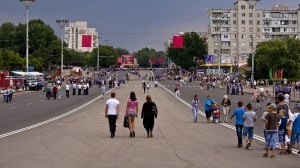Korean waters reach boiling point
Military tension on the Korean peninsula rose on after North Korea threatened to attack any SKorean ships entering its waters.
Military tension on the Korean peninsula rose on Thursday after North Korea threatened to attack any South Korean ships entering its waters and Seoul held anti-submarine drills in response to the March sinking of a navy vessel blamed on Pyongyang.
Separately,the chief US military commander in South Korea criticised the North over the sinking of the South Korean warship Cheonan in which 46 sailors died,telling the communist country to stop its aggressive actions.
North Korean reaction was swift. The military declared it would scrap accords with the South designed to prevent armed clashes at their maritime border,including the cutting of a military hot line,and warned of prompt physical strikes if any South Korean ship enters what the North says are its waters in a disputed area off the west coast of the peninsula.
A multinational team of investigators said May 20 that a North Korean torpedo sank the 1,200-ton ship. Seoul announced punitive measures,including slashing trade and resuming anti-Pyongyang propaganda. North Korea has denied attacking the ship,which sank near disputed western waters where the Koreas have fought three bloody sea battles since 1999.
Inter-Korean political and economic ties have been steadily deteriorating since the February 2008 inauguration of South Korean President Lee Myung-bak,who vowed a tougher line on the North and its nuclear programme. The sinking of the Cheonan has returned military tensions and the prospect of armed conflict to the forefront.
Off the west coast,10 South Korean warships,including a 3,500-ton destroyer,fired artillery and other guns and dropped anti-submarine bombs during a one-day exercise to boost readiness,the navy said.
South Korea also is planning two major military drills with the US by July in a display of force intended to deter aggression by the North.
Gen. Walter Sharp,chief of the 28,500 US troops in South Korea,said the US,South Korea and other members of the UN Command call on North Korea to cease all acts of provocation.





- 01
- 02
- 03
- 04
- 05


























